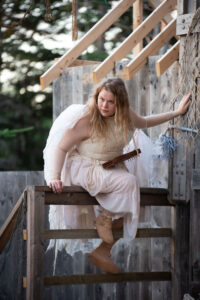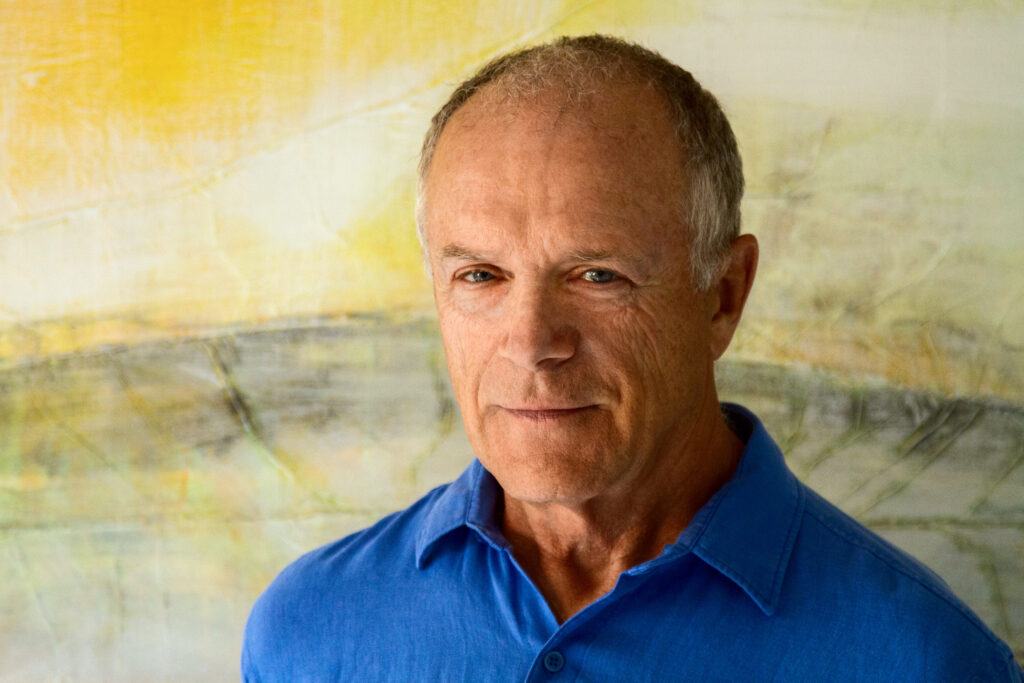Danielle Irvine: Shakespeare was writing about universal human experiences
August 2022
Among Perchance Theatre’s offering this season is The Tempest. Director Danielle Irvine took some time from her busy schedule to chat with NQ about the play and its resonant, lasting themes.
Have you directed The Tempest before?
I have. I think it was in 2010 or 2009, for Shakespeare by the Sea, in Logy Bay.
Why do audience still flock to Shakespeare? Why do theatre companies continue to offer reinterpretations of his work?
That’s a great twofold question and I absolutely hear you. So just to talk about how I’ve done them differently … so Shakespeare was writing about universal experiences and those resonate all through time. As generations pass we still come back to them because while we look at these stories of kings and queens he wasn’t really writing about that, he was writing about jealousy, and love, and insecurity, and grief, and aging, and it’s because of these deeply human experiences he’s managed to capture, in this beautiful language, that we keep coming back to it. And I can do the same play and tell a completely different story with it. So when I was doing it before, my grandfather had just passed away the year before.
You were extremely close to him.
Yes, thank you. My grandfather raised me. So when I approached The Tempest I approached it as a story of a father and daughter, because he was like a father to me. So I was coming at it through that journey because obviously a really strong storyline in there is Prospero and Miranda and him giving her this safe life to move into as an adult, after having raised her and cared for her and schooled her. So that was the lens I took at that time. This time I’m older and originally I was looking at it as having Jodee as Caliban because when he did it for The Power of One I thought oh I have to do this with Jodee so he can be Caliban. But as I started digging into the text I thought, you know what, I actually want him to be Prospero, because my lens this time is the play is about walking away from a power that is really addictive, really compelling, and it’s hard to put down. If you’re aging, it’s not hard. But if you are at the height of your powers it’s a different story. It’s about choosing to let go of something to move into a different part of your life. Something that has fed you but is not feeding the you who you want to be moving into the future. And all the parents in the play have teen-aged children, so it is about people in their 40s and 50s.

What an interesting take.
And so we really wanted that energy, it starts in a storm and moves really, really fast, the whole thing happens in real time, and I wanted to go on this revenge mission with Prospero and have him wrestle with forgiveness until he gets to the very end. Jodee and I talked about that a lot, because the person he’s most angry with is his brother, Antonio, and in in the last scene, Antonio doesn’t say anything. He doesn’t say he’s sorry. And that’s deliberate. Shakespeare was deliberately asking Prospero do you need an apology to forgive? Forgiveness is not about that, it’s about letting go inside yourself. That journey was started this year when I approached it from the lens of somebody my own age. And then we found all this beautiful, explosive, rocky journey that he’s on and he’s constantly surprised by Miranda falling in love and he’s testing this kid and this kid is a good kid, there’s a conversation about nature/nurture in there, if you’re raised to be good are you going to be good, if you’re raised to be bad are you going to be bad? Do we have any choice in it? At the end of the play Prospero talks about letting people be who they are. And accepting people for who they are. My Buddhist meditation practice is about allowing people to be who they are. Prospero struggles because he tries to change who Caliban is, who his brother is, and once he lets go of that, and allows them to be who they are, they are both good and bad. And that’s human. And there’s forgiveness for people just to be human. So that’s the story we came to. And it’s a lot of fun. We went on a rough magic journey.
Part two of this conversation will be posted next week.
Perchance Theatre’s The Tempest continues to the end of this month.



